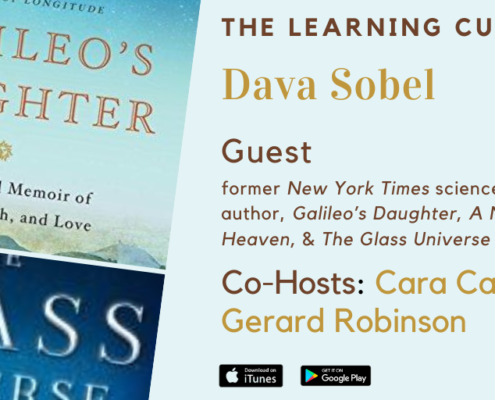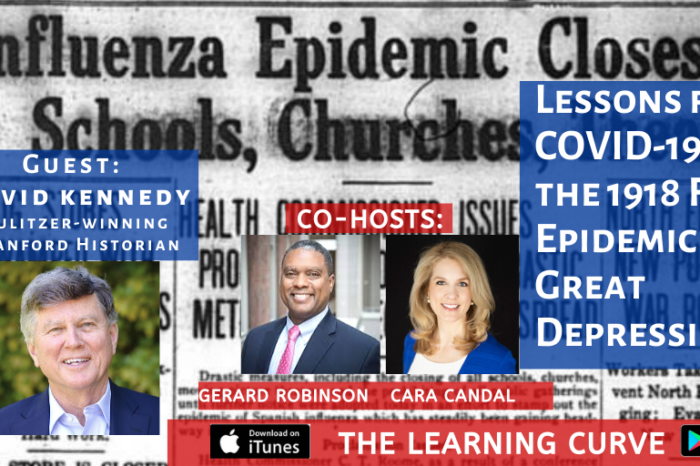Stanford Pulitzer Winner David Kennedy on Lessons for COVID-19 from the 1918 Flu Epidemic & Great Depression
/0 Comments/in COVID Podcasts, Featured, Podcast, rCOVID, US History /by Editorial StaffThis week on “The Learning Curve” Cara and Gerard continue coverage of COVID-19’s impact on K-12 education, joined by Pulitzer-winning historian David Kennedy, the Donald J. McLachlan Professor of History Emeritus at Stanford University. Professor Kennedy describes some of the distinguishing characteristics of the COVID-19 pandemic, compared to the 1918 flu and the Bubonic Plague in terms of rapidity, scale, mortality rate, and death toll. They also delve into differences, such as our society’s technological advancements, that help ease the disruption; governments’ data gathering capacity to fully understand the impact, and ability to mobilize; and the credibility of our leadership and institutions. They explore whether public health crises have received sufficient attention in K-12 history instruction, and what goes unreported in most accounts; and discuss the delicate balance between protecting civil liberties while avoiding the dangers of spreading misinformation.
Stories of the Week: The Florida Virtual School is gearing up to train teachers to deliver over 100 K-12 courses in mathematics, English language arts, history, science, electives, Advanced Placement, and career and technical education to 2.7 million students, at no cost, until June 30. A Gallup survey reveals that 42 percent of parents are concerned about COVID-19 school closures’ negative impact on their child’s education, and 11 percent are not using any educational resources to fill the instructional gap.
Newsmaker Interview Guest:
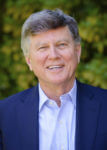 David Kennedy is the Donald J. McLachlan Professor of History Emeritus at Stanford University. Professor Kennedy received the Dean’s Award for Distinguished Teaching in 1988. He is the current editor (since 1999) of the Oxford History of the United States series. Kennedy was awarded the Pulitzer Prize for History in 2000 for Freedom from Fear: The American People in Depression and War. His book Over Here: The First World War and American Society explored America’s political, economic, and domestic life during World War I. Kennedy received his B.A. in History from Stanford University and his M.A. and Ph.D. in American Studies from Yale University.
David Kennedy is the Donald J. McLachlan Professor of History Emeritus at Stanford University. Professor Kennedy received the Dean’s Award for Distinguished Teaching in 1988. He is the current editor (since 1999) of the Oxford History of the United States series. Kennedy was awarded the Pulitzer Prize for History in 2000 for Freedom from Fear: The American People in Depression and War. His book Over Here: The First World War and American Society explored America’s political, economic, and domestic life during World War I. Kennedy received his B.A. in History from Stanford University and his M.A. and Ph.D. in American Studies from Yale University.
Tweet of the Week:
Amid Dispute over Charter School Resolution, President of San Diego of NACCP Chapter Suspended by National Board
by @SDUTmcdonald #CharterSchools #SchoolChoicehttps://t.co/DgTNAegX5F
— Choice Media (@ChoiceMediatv) March 30, 2020
The next episode will air on April 10th with guest, Tim Keller, a Senior Attorney at Institute for Justice.
Newslinks
By May, nearly 3 million Florida K-12 students may be using state’s digital district curriculum | Florida | thecentersquare.com
42% of Parents Worry COVID-19 Will Affect Child’s Education
https://news.gallup.com/poll/305819/parents-worry-covid-affect-child-education.aspx
Get Updates on Our Education Research
Browse All Podcast Episodes:

UGA Prof. Valerie Boyd on Zora Neale Hurston, the Harlem Renaissance, & Black History Month

Boston Catholic Schools Supt. Tom Carroll on National Catholic Schools Week

AZ Supreme Court Justice Clint Bolick on National School Choice Week

Pulitzer Winner Taylor Branch on MLK, Civil Rights History, & Race in America

Ignat Solzhenitsyn on His Father’s Nobel Prize-Winning Fight with Communism

Eva Moskowitz of Success Academy on Charter Schools, Achievement Gaps, & COVID-19 Learning Loss

USED Asst. Sec. Jim Blew Talks Sec. DeVos, School Choice, & K-12 Politics

Oxford & UCLA Pulitzer Winner Prof. Daniel Walker Howe on Horace Mann, Common Schools, & Educating for Democracy

Stanford’s Prof. Caroline Hoxby on Charter Schools, K-12 Ed Reform, & Global Competitiveness

SABIS® President Carl Bistany on International Education, Charter Public Schools, & At-Risk Students

UConn’s Prof. Wayne Franklin on James Fenimore Cooper, The Last of the Mohicans, & American Democracy

Wall Street Journal Columnist Jason Riley on the 2020 Election, School Choice, & Race in America

Nationally Recognized Author Tara Ross on the Importance of the Electoral College

Pulitzer-Winning Author Stacy Schiff on the Salem Witch Trials
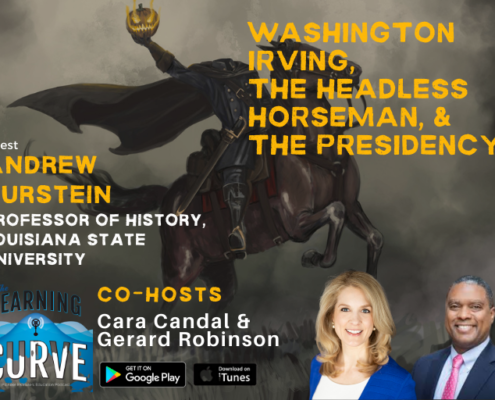
LSU’s Prof. Andrew Burstein on Washington Irving, the Headless Horseman, & the Presidency

NCTQ’s Kate Walsh on the Crisis in K-12 Teacher Prep, Quality, & Evaluation

Cheryl Brown Henderson, Daughter of Lead Plaintiff in Brown v. Board of Ed., on Race & Schooling

Harvard PEPG’s Prof. Paul Peterson on Charter Schools, Digital Learning, & Ed Next Polling

Award-Winning Writer Brenda Wineapple on the 170th Anniv. of The Scarlet Letter & Pres. Andrew Johnson’s Impeachment

International Best-Seller Dr. Jung Chang On Wild Swans, Mao’s Tyranny, & Modern China

Kelly Smith, Prenda CEO, on Microschooling & the Future of K-12 Learning

U-Ark Prof. Jay Greene & EdChoice’s Jason Bedrick on Yeshivas vs. New York & Religious Liberty

Michelle Rhee, Former Chancellor, D.C. Public Schools, on Leading Urban District Reform & the COVID-19 Moment
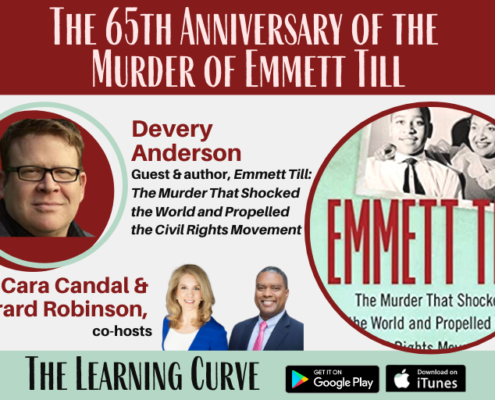
Award-Winning Author Devery Anderson on the 65th Anniversary of the Murder of Emmett Till

Christensen Institute’s Julia Freeland Fisher on K-12 Disruptive Innovation, Professional Networks, & Social Mobility

President of D.C.’s AppleTree Institute, Jack McCarthy on Charter Schools and Fall Reopening
“Call Me Ishmael” Melville Scholar Prof. Hershel Parker on Moby-Dick & Classic Literature
